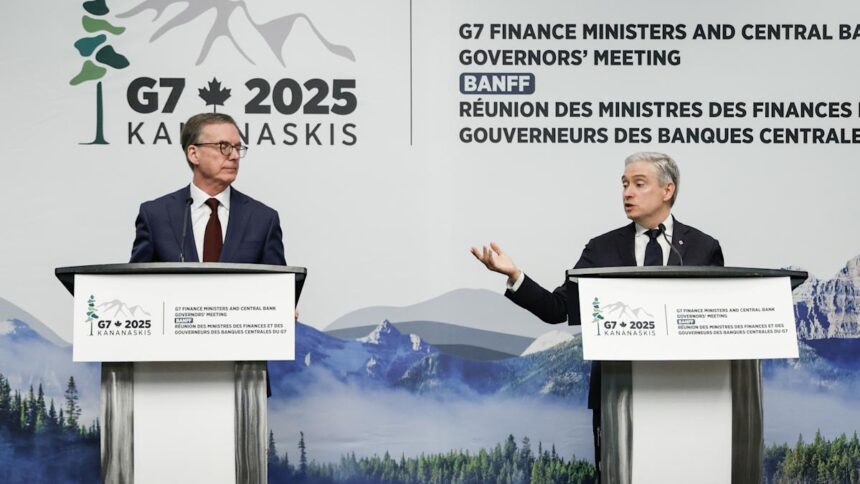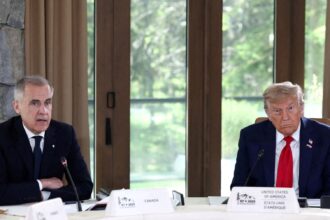In the pristine mountain setting of Banff, Alberta, the world’s economic powerhouses have found rare common ground amid global uncertainty. Finance ministers from G7 nations wrapped up their three-day summit yesterday with a unified front on financial aid to Ukraine and growing pressure on China over industrial overcapacity—a striking display of solidarity at a time when geopolitical tensions have strained international cooperation.
“This meeting has demonstrated that the G7 remains an anchor of stability in turbulent times,” said Canadian Finance Minister Chrystia Freeland, who hosted the summit against the backdrop of the Canadian Rockies. “Our resolve to support Ukraine and address China’s market-distorting practices remains unwavering.”
The ministers committed to finalizing the details of a landmark $50 billion loan package for Ukraine using frozen Russian assets—a measure that would deliver critical support to Kyiv as it continues to defend against Russian aggression. This financial lifeline, expected to be officially approved at the G7 leaders’ summit in June, represents one of the most significant international financial commitments to Ukraine since the conflict began.
Economic relations with China dominated much of the discussions, with ministers expressing shared concerns about industrial overcapacity in sectors ranging from electric vehicles to solar panels. U.S. Treasury Secretary Janet Yellen called for a “coordinated approach” to address what she described as China’s “unfair economic practices,” though ministers carefully balanced their criticism with acknowledgment of China’s importance to global supply chains and economic stability.
The summit also produced tangible progress on international tax reform, with ministers reaffirming their commitment to implementing the OECD’s two-pillar tax plan aimed at ensuring multinational corporations pay their fair share of taxes. Despite implementation challenges, this represents a significant step toward addressing tax avoidance strategies that have eroded national tax bases for decades.
“We have achieved more than expected,” German Finance Minister Christian Lindner told reporters. “The G7 has shown it can still deliver results even as the world grows more complex and divided.”
Climate finance featured prominently in discussions as well, with ministers acknowledging the growing fiscal burden of climate-related disasters. They agreed to enhance cooperation on climate resilience funding and explore innovative financing mechanisms to help vulnerable nations adapt to climate change impacts.
However, beneath the surface of unity, some tensions persisted. Discussions on domestic fiscal policies revealed divergent approaches to managing inflation and public debt, with European ministers generally favoring more aggressive deficit reduction while their North American counterparts emphasized growth-oriented strategies.
“Different economic conditions call for different policy responses,” noted Bank of Canada Governor Tiff Macklem, who participated in the meetings. “But we share common goals of sustainable growth and financial stability.”
The finance ministers’ ability to find consensus on major issues despite these differences underscores the continuing relevance of the G7 as a forum for international economic cooperation. As global challenges grow more complex, can this display of unity translate into effective action on issues ranging from geopolitical conflicts to climate change, or will national interests ultimately prevail when political pressure intensifies?
For the latest developments in global economic policy, visit CO24 Business and CO24 World News.
















